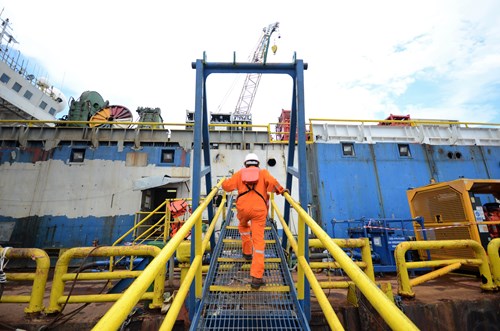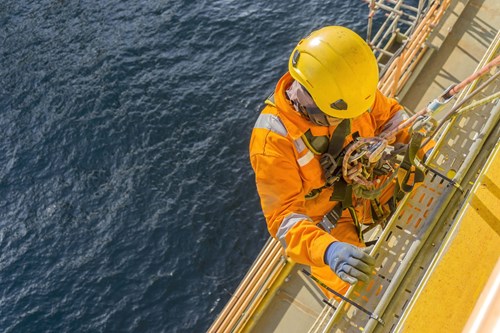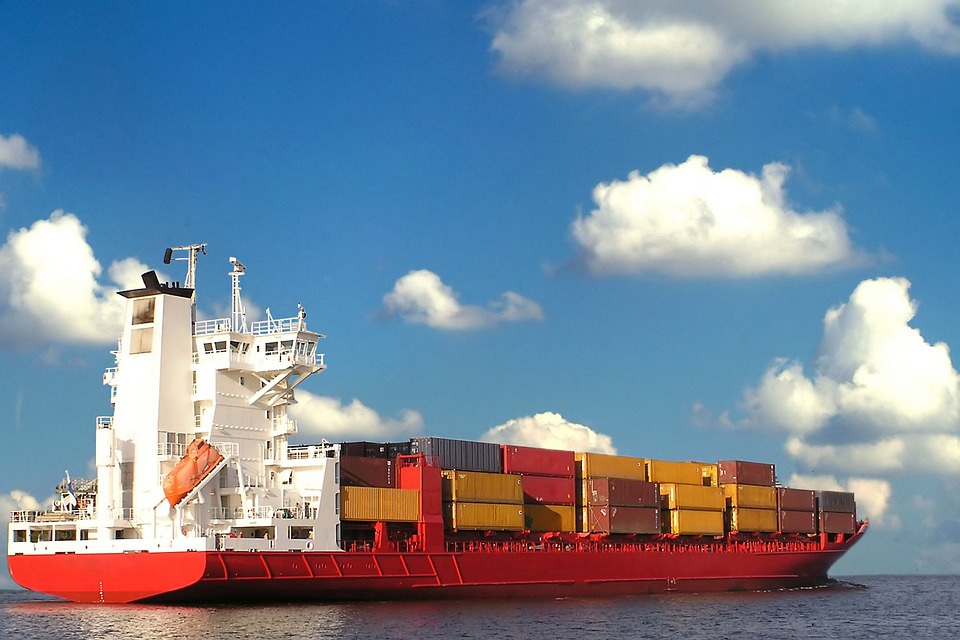Travel’s role within the shipping industry is to ensure efficient operational performance by supporting the mobilisation of the workforce.
As with all aspects of business travel, the number one priority should always be safety and for the maritime sector that means the focus will be on ensuring safe ship crew changes.
In our latest blog, we look at the importance of successful crew changes to the sector and to global trade. We examine some of the challenges including international maritime regulations and the impact of the pandemic in creating a crew change crisis and give you a steer on what you should expect from your travel partner to support your crew change strategy.
The role of the TMC in crew changes
The requirement to safely mobilise a vessel and the necessary crew of seafarers to support operations globally can potentially cost a shipping firm many thousands of pounds per week which means there is little room for error and it is essential the process is as efficient as possible.
The ability to manage this complicated logistical undertaking, guarantee the safety of its seafarers, control costs, comply with regulations and entry requirements as well as maintain and meet business targets requires specialist skills, time and commitment.
That’s why an increasing number of maritime operators choose to partner with a Travel Management Company to take responsibility for their crew change needs.
Clyde Travel Management have over 30 years’ experience of managing the challenging and business-critical nature of moving ship crews safely, on time and cost effectively, which makes us the ideal partner for maritime operators.
A key element of Clyde’s support is our focus on pre-planning, an area in which, in our experience, clients particularly value the assistance of a trusted partner.
Our expertise in risk assessment and the development of crisis management plans which highlight and offer solutions for any issues or threats which might compromise crew safety is an invaluable element of our support.
Clyde’s ability to meet the sector’s safety standards and logistical demands is based on providing a bespoke travel management solution for each client using accurate and up to date travel data which helps safely manage crew movements.
We’re also familiar with the complex process of arranging travel services for multiple crews simultaneously, meaning we can remove from our clients a potentially onerous administrative burden.

Technology is key
However, we also recognise that while a successful track record is important, it’s also crucial that the support we provide continues to progress if it is to meet our clients’ needs.
In the demanding and complex environment of crew changes, maritime operators require a service which is future-facing and sophisticated which is why we deploy market-leading technology.
Our proprietary Consort™ system sets us apart from the competition in supporting shipping firms, integrating with leading providers of all existing crew management software and providing an end to end solution for the crew manager or fleet director.
Safety first
Seafarer safety is, at all times, the number one priority for the operator and for your TMC.
Your key duty is to ensure the protection, safety and wellbeing of your crew. That can only happen if you and your TMC take a proactive approach to your duty of care responsibilities which include:
- Ensuring the working environment is safe for every employee
- Carrying out risk assessments
- Providing training which is site and role-specific
- Protecting employees’ mental and physical health and wellbeing
Our lengthy experience in supporting clients to meet all the appropriate regulations and standards in terms of staff safety makes Clyde the ideal partner.

Keeping the wheels turning
The logistics of supporting and arranging the deployment of hundreds of thousands of personnel across the world to keep the wheels of the global economy turning are extremely complex.
For ship operators, moving a crew by sea to and from installations, projects, cities and ports in multiple territories around the world for extended periods can be a massive undertaking and it would be both naïve and costly not to appreciate the difficulties involved and the challenges which will have to be overcome.
The task itself, on the face of it, is relatively simple – ensuring that the right crew are in the right place at the right time.
And, crucially, that all crew change activity happens safely for all concerned.
But that’s where the simplicity ends. The nature of world travel is that every country is different, with its own rules, regulations and relevant national authorities, its specific entry requirements and visa issues, its climatic and geopolitical uncertainties and threats and its cultural idiosyncrasies.
For shipping companies, when it comes to crew change and the mobilisation of seafarers, all of these factors have the potential to affect business operations, disrupt travel itineraries, delay crucial actions and, most importantly, impact the traveller’s safety and security.
And it’s also important to emphasise that circumnavigating all these challenges to successfully facilitate crew changes has another potential effect on businesses and one which could also have serious consequences, namely, the amount of time that has to be devoted to ensuring a safe operation for their teams.
Travelling and working safely
For the maritime industry, managing the movements of the sector’s estimated 1.9 million seafarers will always be a complex process. A huge number of factors have to be considered when it comes to efficiently deploying so many seafarers and conducting crew transfers.
Tasks could including scheduling, crew health and welfare awareness, medical care, recruitment and payment systems as well as ongoing training which ensures the operator is aware of their responsibility to ensure all laws and standards are being adhered to.
Ultimately, the aim is to create a situation in which all ships have the correct crew to carry out operational requirements efficiently to meet business requirements and that every seafarer on every vessel is able to work and travel safely at all times, in all countries.
That safety message is, of course, crucial. And it’s also important to highlight the benefits that are likely to accrue for the maritime trade operator in terms of company relationships and staff productivity when they realise that, as key workers, their safety is viewed by the business as a top priority.
In our experience at Clyde Travel of partnering with the maritime trade for more than 30 years, taking such a seafarer-centred approach can only pay dividends in terms of staff performance and deliver benefits in key areas such as recruitment, employee satisfaction and retention.

Crew change crisis during Covid
One of the phrases which was heard most often during the COVID pandemic was in relation to the dedication of ‘key workers’. Quite correctly, this was most often being used in relation to the fantastic contribution being made to our communities by those working in the National Health Service and related sectors.
However, during some of the darkest times of the global health crisis, there was also a growing appreciation for many other key workers whose contribution to society may previously have been undervalued.
Typical examples such as care workers, postal staff, refuse collectors, teachers and nursery staff, bus, taxi and delivery drivers were rightly praised for their efforts during the crisis.
It was, however, less common to hear reference to key workers in the maritime industry, despite the fact that the pandemic left thousands of seafarers stranded on cargo ships in foreign countries, separated from their families, with many continuing to fulfil their contracts in the most challenging circumstances.
And, of course, the enormous logistical issues which the COVID crisis created for all businesses were particularly difficult for the maritime sector and for the process of crew change.
At one point in 2020, the International Chamber of Shipping estimated that more than 150,000 required repatriation and a quarter of a million were overdue to return home and were working on extended crew contracts.
The uncertainty of the pandemic situation and the varying conditions put in place by national governments across many countries also meant that complying with regulations, testing requirements and entry restrictions at ports in different areas of the world while crew changing became even more challenging.
And, of course, the crisis also created other serious issues, not least reduced capacity and price increases which were further exacerbated by the outbreak of war in Ukraine.
If anyone had doubts about the complexity of crew changes and the extent of the challenges involved in the 21st century maritime trade, the turbulence and uncertainty of recent years has dispelled them.
Meeting your safety and business targets
The challenges of being able to maintain an efficient crew change strategy have been brought into sharp focus for the maritime industry by the unprecedented global events of recent years.
A process which was already time-consuming, complex and costly has become more difficult due to unforeseen circumstances which have, in all likelihood, permanently changed the landscape.
The support of a TMC with the expertise, experience and technological back-up to ensure you meet your seafarer safety targets and your business ambitions can be invaluable.



